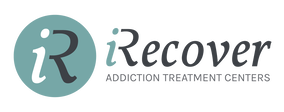The collision of Addiction and the COVID-19 Pandemic

RECOVERY IS POSSIBLE
The quote “the more things change, the more they stay the same” is a reference to situations where there appears to be a meaningful change, however, many underlying fundamentals are still exactly the same. This can be the same as well for people struggling with substance abuse addictions – especially during times like these with the world in turmoil. As the world that we know is changing, their addiction and the triggers that cause it, are getting much worse.
This is a particularly important time for people with drug and alcohol addictions as they may turn to increased dependency on addictive substances as a way to cope with stresses in their life. Social distancing, unemployment, financial stresses, food security and uncertainty about the future are causing unprecedented levels of anxiety, stress, depression – all with damaging repercussions. Family members, especially during this social isolation, are limited in their ability to help. Getting the person into a residential addiction rehab facility that delivers an evidence-based program, can provide the highest potential for success – and least likely to relapse.
COVID-19 has presented new challenges that have disrupted people’s daily routines and are contributing to mounting stress and anxiety often leading to substance abuse disorders and relapses – which have the potential for increased exposure to COVID-19.
Public funding for mental health services are available but don’t always provide the depth and duration necessary to properly uncover the underlying issues that cause or deal with substance abuse addiction. In the same way, going to see a doctor about being overweight doesn’t solve the problem. It is getting the right treatment (whether it’s exercise or rehab) and putting in the time, effort and commitment to make change happen. Sobriety doesn’t just happen – it takes effort. For those willing to commit to a 30-day addiction treatment program such as what iRecover provides, they will have a substantially higher rate of success and ongoing sobriety.
Risk factors relating to the intersection of substance abuse disorders and COVID-19:
● Isolation and loneliness have well established negative consequences on a person’s physical and emotional well-being. Those that are isolated and experiencing numerous stress factors during the pandemic may turn to abusing addictive substances to alleviate their negative feelings.
● People with mental health and addiction issues are particularly vulnerable and may experience increased anxiety or worsening of existing mental health and addictions symptoms.
● There is some overlap in symptoms of opioid withdrawal and COVID-19 which may place misdirected attention and strain on the healthcare system already dealing with the pandemic.
● Compromised lung function from COVID-19 could also put at risk those who have opioid use disorder or methamphetamine and other psychostimulant use disorders.
● With several closures of treatment facilities due to COVID-19, capacity and support services within our healthcare system are shrinking at the same time the need and demand for addiction treatment services are increasing.
● Alternative Outpatient (non-residential) drug and alcohol treatment programs could substantially increase the risk of daily community transmission of the virus for the vulnerable demographic (pre-existing conditions, low income, limited access to healthcare, etc.).
● With mandatory social distancing and self-isolation, certain population groups struggling with addictions may suddenly not have access to drugs and therefore a spike of overdoses, withdrawals and relapses could become prevalent.
● Social distancing may exacerbate the unsupervised withdrawal and overdose issue which has the high potential to result in dangerous life and death consequences.
● Those requiring medication to treat their addiction may find it more difficult to fulfill their prescriptions and access treatment in the already inundated healthcare system.
● Health experts are warning that the restrictions at the Canada-US border due to COVID-19 could limit the illegal drug supply, leading to more adulterated and toxic substances on the street.
● Sharing drug-using equipment may increase the risk of COVID-19 infection.
● Recreational drug use often takes place in crowded settings, thus increasing the risk of exposure to and community transmission of COVID-19.
● Addicts may turn to abusing alcohol-based hand sanitizers which were not designed to be ingested and can result in adverse health consequences.
● Victims of domestic violence are experiencing a greater threat as many are confined to their homes with their abusers that often struggle with substance abuse issues.
● Addicts are prone to a higher risk of unemployment, food security and homelessness. During this COVID-19 pandemic, these risks are likely to increase substantially.
● Homelessness or incarceration can expose people to environments where they are in close contact with others who might also be at higher risk for infections including COVID-19.
● Substance abuse disorders may present underlying conditions that can parallel those of the elderly population with underlying conditions and susceptibility to increased risk from COVID-19.
● Those with substance abuse disorders and associated complications such as respiratory health may be especially susceptible to infection by the virus that causes COVID-19.
● Drug problems are often more common in marginalized communities.
● When hospitals are pushed to capacity, there is an added danger of persons with substance abuse disorders being deprioritized for care if they present COVID-19 symptoms.
● When individuals abuse substances, their decision making and judgement are often impaired, as is their ability to properly gauge risk. For this reason, they may not follow social distancing guidelines and contribute to the spread of the COVID-19 virus.
These risk factors and others can be mitigated or entirely eliminated, providing that the individual enters, engages in the counselling and programming sessions and graduates from an evidence-based residential addiction treatment program such as iRecover. Real work is required on the part of the clinical staff and the participant. A comprehensive team of medical, clinical, support staff and possibly even their friends and family are necessary to help the individual overcome their addiction.
iRecover’s COVID-19 Response:
New participants are carefully screened for the Coronavirus. iRecover has doubled our cleaning and sanitation efforts and we have put a COVID-19 management plan in place. Participants are reminded daily of the protocols for social distancing and washing hands. All required operational changes have been met or exceeded. Our staff remain vigilant and strictly follow health and safety protocols as per Dr. Deena Hinshaw (Chief Medical Officer of Health for the Province of Alberta) CMOH Order 06-2020 directed to residential addiction treatment service providers.
iRecover Alberta is accredited by CARF, the Commission on Accreditation of Rehabilitation Facilities, which means treatment meets the highest level of quality care standards. Our Alberta facility is also a licensed addiction treatment facility with the Province of Alberta.
Essential Health Services
Addiction treatment services are considered ‘essential health services’ during the COVID-19 pandemic. iRecover’s addiction treatment centers remain open to provide medical detox and residential addiction treatment to individuals in need, including a segment of the population which have been deemed to be at a higher risk for the transmission of the COVID-19 virus.
When an individual graduates from an addiction treatment program, it reduces the potential need for frequent visits to medical clinics enabling them to have more capacity to provide for others in need. Reducing demand for treating addicts will enable societal resources to be directed to other critical areas and enable hospitals to prioritize for COVID-19 and other critical illnesses.
As a society during the pandemic, those that have attended rehab will reduce the number of individuals with impaired decision making and judgement which could otherwise have a negative impact on the transmission of the virus. Reduced clinic/hospital visits will further reduce the likelihood of transmission, as well as reduced transmission attributed to crowded settings such as shelters. This will enable hospitals to allocate resources and prioritize for COVID-19 cases. As risk factors are reduced or eliminated, the potential for transmission, hospitalization and death from the virus will also be reduced, directly supporting Canada’s battle against the COVID-19 pandemic.
Benefits of attending Residential Addiction Treatment during the COVID-19 pandemic:
- Receive medically supervised detoxification of the abused substances.
- Receive residential addiction treatment and aftercare services.
- Private single rooms with ensuite bathrooms will help with social distancing.
- Health will improve with healthy meals and a consistent diet.
- Reduced likelihood of unsupervised withdrawals or overdoses.
- Improved decision making and judgement to follow social distancing.
- Eliminate the risk of transmission through shared drug use equipment.
- Reduce the risk of incarceration as a result of drug use and other crimes.
- Improvement in health factors increases the chance of survival from the virus.
- Experience a degree of stability during uncertain and stressful times.
- Improved ability to cope with disrupted routines, stresses and uncertainty.
- Decrease chances for unemployment and homelessness.
- Financing options reduces barriers and financial strain on individuals seeking treatment.
- 30-day rehab treatment to help achieve long term sobriety.
- Reduce, prevent and/or eliminate associated risk factors.
- Live the healthy lifestyle you or they have always wanted.
Next Steps
iRecover Addiction Treatment Centers are continuing to help people overcome their drug and alcohol addiction during the COVID-19 pandemic. If you or someone you love is struggling with an addiction, our team is available 24/7 to help them navigate the path to sobriety. Our medical detox and treatment program do not require a doctor referral.
Our treatment centers remain open to serve those needing treatment, just as we have been for over 14 years.
We encourage you or your loved one to please reach out to us at 1-877-387-4155.
We are available 24/7, even on weekends. One call could save a life.
